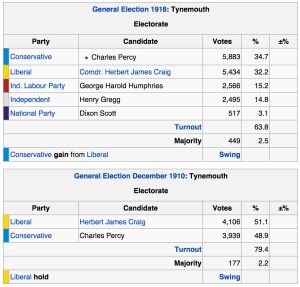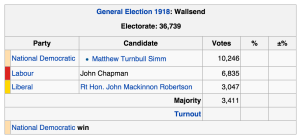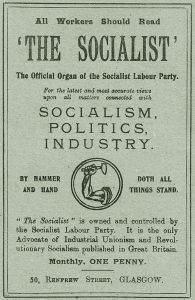Wilhelmina Tobias: Politics and Protest
There is limited mention of politics in Wilhelmina’s memoir, but in spite of this she makes her affiliations clear on the very first page. Her memoir, despite this declaration of political intent, remains a childhood one. With this consideration in mind, the memoir understandably contains very little detail of the political climate at a time when the political landscape was changing dramatically. Wilhelmina concentrates on the issues that affect her experiences of childhood so insights into the political outlook are sparse and often made in passing.

However, one of Wilhelmina’s most intriguing recollections is connected to this declaration of political affiliation on the very first page, in which she remembers her father standing on a soapbox in the local park speaking to a congregation of workers and trade unionists. She recalls her ‘father […] standing on an upturned box speaking to a small crowd. It was my very first memory of him and apparently he was then forming a branch of the then almost unheard of Labour Party.’
As mentioned in my post, Life and Labour, the working class began to take more pride in their work as well as finding solidarity within their class environment similarly to the model described by Marx. Wilhelmina describes her father and a small group of workmates conducting clandestine meetings writing, ‘a small band of dedicated men-dedicated to the improving of conditions & pay for their fellow workmen-used to meet in our house in secret, because any known supporter was sacked from his job & victimised by being unable to get a job in any ship-yard a long the River Tyne.
Further victimisation was evident when Wilhelmina and her brother attended school. Wilhelmina describes being ‘…classed as “Anarchists” & after we started school my brother & I were also “victimized” by being the target for “voting balls” wielded by both [little] Tories and Liberals during elections. These were made of newspapers rolled into tight balls, tied to string & wielded with very painful results.’ I have been unable to find any other mention of these “voting balls”, so they may have been an occurrence specific to the Northeast, as many scholarly traits and habits are. That this victimisation occurred during election time is contrary to the results of those elections, indeed the performances of the Labour Party in the elections subsequent to it’s formation were positively revolutionary and resulted in a viable alternative to the existing parties for voters’.

By looking at voting records around the turn of the twentieth century for the parliamentary constituencies covering where Wilhelmina lived, firstly Tynemouth, and on its subsequent formation for the 1918 General Election, Wallsend, we can see the Labour Party slowly gaining a foothold. Despite only making their first appearance in the elections, The Labour Party candidates performed well and received thousands of votes, showing how far it progressed in the area, from the clandestine meetings described by Wilhelmina, to a growing political movement.

The politics of the early 1900’s were a radical and ever changing environment and in many ways it is a shame that Wilhelmina was not in a position to be privy to the details of the formation of the local Labour club. Despite this her allusions and references are interesting enough to give the reader pause for thought when considering the political landscape of the period covered by the memoir.
Works referenced:
Marx, K, Engels, F. (1998) ‘The Communist Manifesto’ Penguin group, New York.
Tobias, Wilhelmina, ‘Childhood Memories’, MS pp.22 (c, 5,000 words). Brunel University Library.
Images:
Screen Shot 2014-12-06 at 18.07.22.jpg
http://upload.wikimedia.org/wikipedia/en/thumb/c/c1/Socialist-ad-1920.jpg/500px-Socialist-ad-1920.jpg
Screen Shot 2014-12-04 at 18.01.51.jpg
Screen Shot 2014-12-06 at 18.02.41.jpg


Leave a Reply